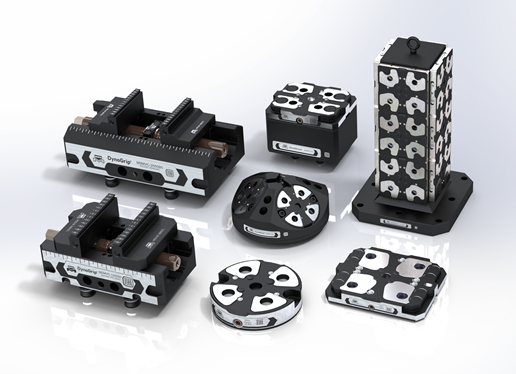Mate Precision Technologies earns DMG MORI DMQP Certification for workholding systems
Mate Precision Technologies earns DMG MORI DMQP Certification for workholding systems
Mate Precision Technologies, a provider of workholding solutions, has earned its certification as a DMG MORI DMQP partner for its 52/96 workholding system.

Mate Precision Technologies, a provider of workholding solutions, has earned its certification as a DMG MORI DMQP partner for its 52/96 workholding system.
DMG MORI is a global leader in the manufacturing of machine tools and has established the DMQP (DMG MORI Qualified Products) program to recognize partners who meet their strict quality standards. The certification process thoroughly evaluates the partner's products, processes, and services.
Mate Precision Technologies has successfully met all the requirements and has been recognized as a trusted partner by DMG MORI.
Mate said the workholding system is"renowned for its versatility and efficiency in holding a wide range of workpieces in machining operations, offers unparalleled accuracy and repeatability, making it the go-to choice for precision machining."
"We are thrilled to receive the DMG MORI DMQP certification for our workholding system. This recognition is a testament to our dedication to providing our customers with the best products and services. Mate is proud to be a trusted partner of DMG MORI and looks forward to continuing to deliver innovative solutions to the metalworking industry," said Dean Sundquist, CEO of Mate Precision Technologies.
This certification is a significant milestone for Mate Precision Technologies, he said, reinforcing its position as an industry leader in metalworking. With the DMG MORI DMQP certification, customers can trust the quality and reliability of Mate's workholding system. The company's commitment to innovation continues to drive the development of cutting-edge solutions, empowering manufacturers to enhance their productivity and efficiency





